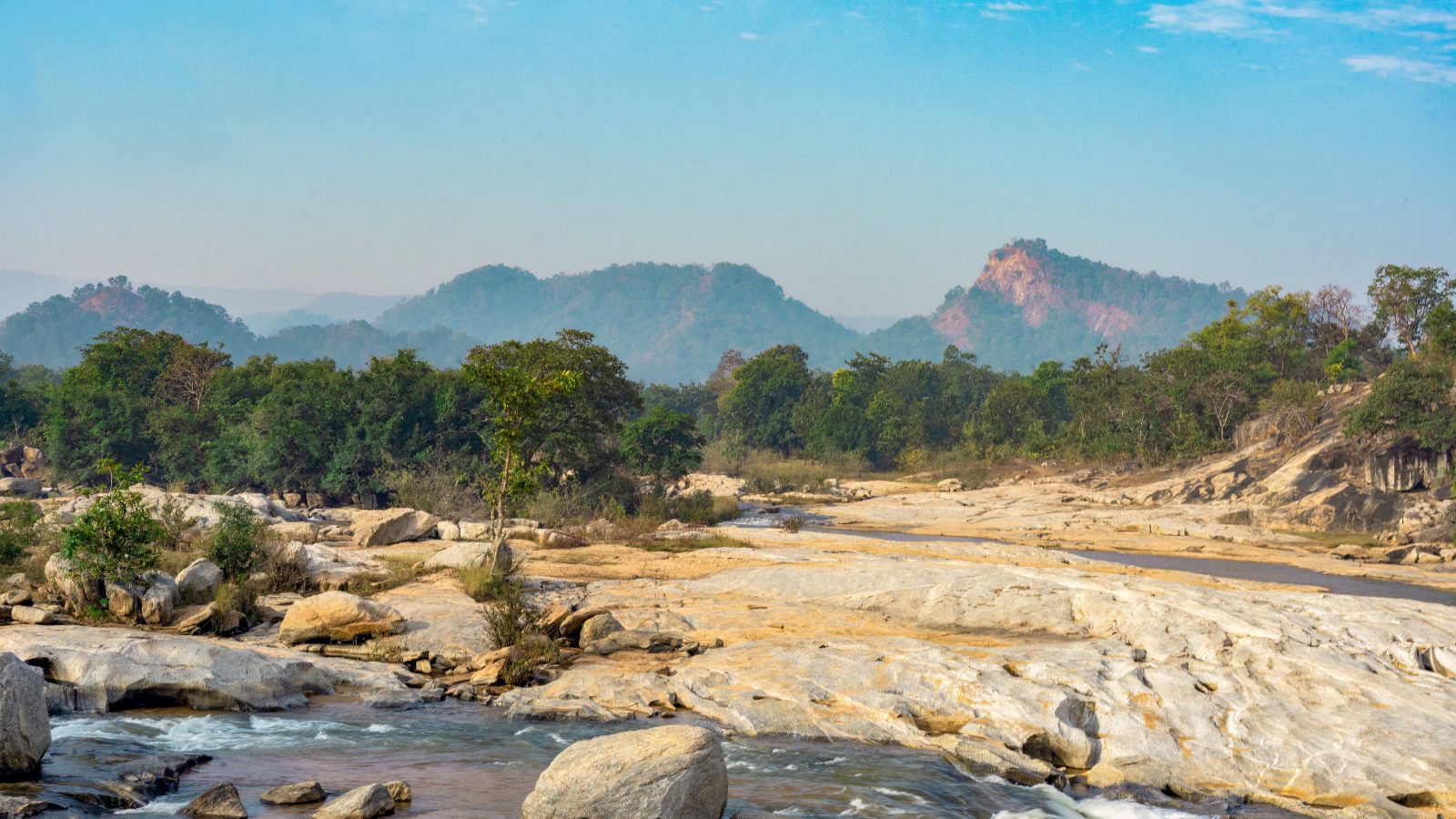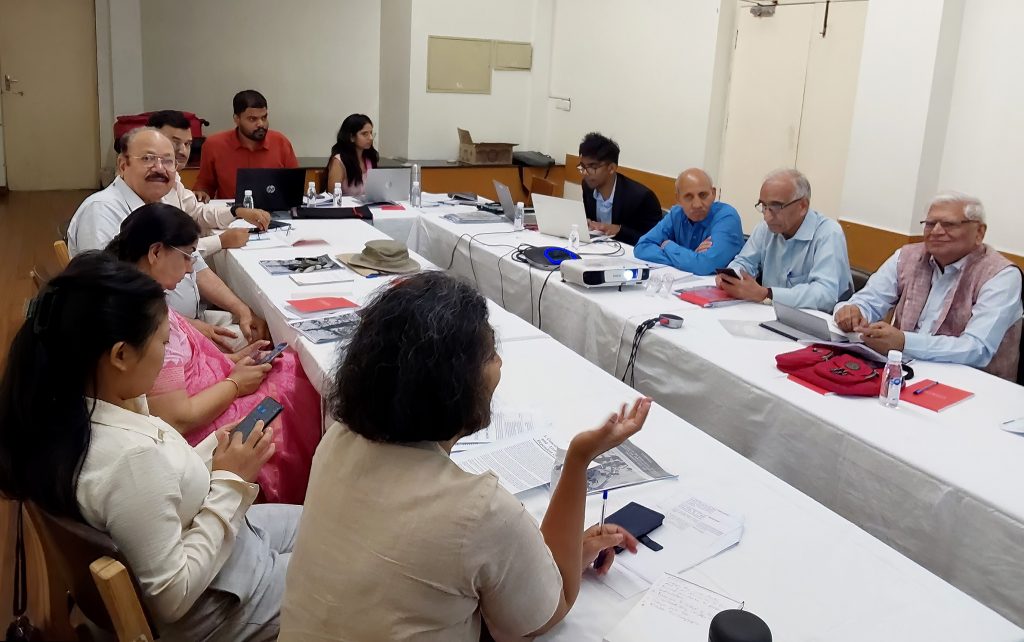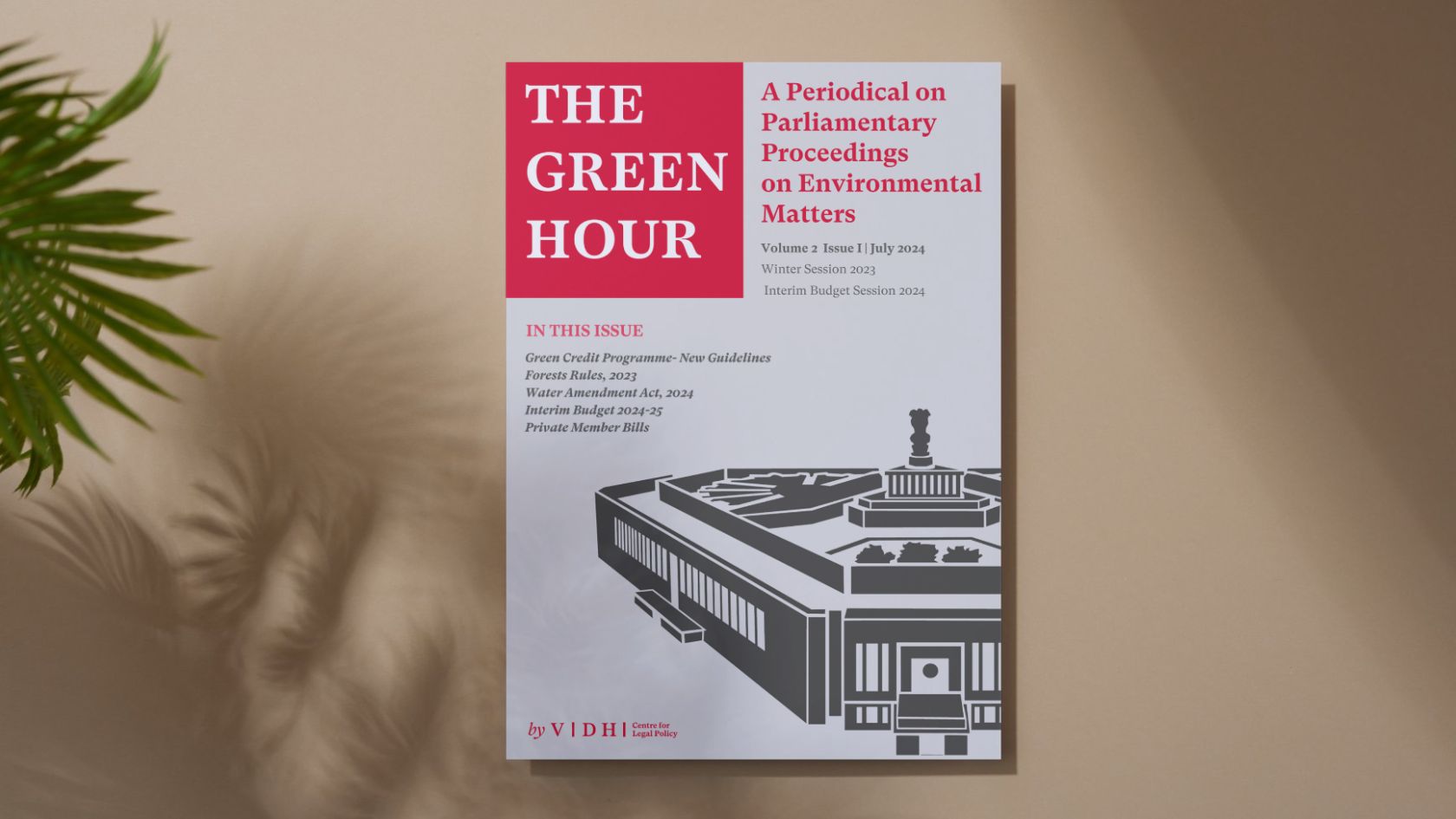
Report of the High-Level Working Group on the Forest (Conservation) Amendment Bill 2023
Submission to The Joint Parliamentary Committee on The Forest (Conservation) Amendment Bill 2023
The Ministry of Environment, Forest & Climate Change introduced the Forest (Conservation) Amendment Bill, 2023 (“Bill”) in Lok Sabha on 29th March 2023, proposing amendments to the Forest (Conservation) Act, 1980 (“FCA”). The Bill has been referred to the Joint Committee of the Parliament (“JC”) for examination, which is expected to give its report in July 2023. The JC vide press communication CBC 31201/11/0001/2324 has invited views/ suggestions on the proposed amendment. This submission seeks to express concerns and make suggestions on the same.
Vidhi Centre for Legal Policy (“Vidhi”) constituted an independent High-Level Working Group (“HLWG”) to comprehensively review the Bill and come up with suggestions to be submitted to the Joint Committee on the Bill. The HLWG consisted of 18 members of high repute and diverse experience on forest-related issues. It included retired public service officers, senior conservationists, forest and wildlife scientists, eco-restoration experts, representatives from civil society organizations working with forest-dependent communities and lawyers from various parts of the country.
The HLWG adopted a participative and inclusive approach by actively seeking suggestions from experts and stakeholders from diverse backgrounds. They also relied upon the secondary literature in the form of international conventions, domestic best practices, case studies, news articles, and reports/ studies from various government and non-government organizations. This approach ensured that a wide range of perspectives and expertise were considered during the formulation of the submission. The HLWG aims to ensure that its recommendations are well-informed, widely understood, and can contribute to informed decision-making processes. The finalization and approval of the submission took place during a meeting held in New Delhi on 18th May 2023. During the meeting, 13 out of the 18 members of the HLWG were present in-person, while the remaining 5 members joined virtually.

Having closely studied the proposed amendment, the HLWG has identified several aspects that warrant careful consideration and further deliberation. The submission has been organized into 6 Chapters covering a clause-wise discussion of the Bill. Each Chapter presents a detailed analysis of the clause, concerns with respect to that clause, and suggests modifications.
In Chapter 1, the newly inserted Preamble is discussed. While the Preamble sets ambitious targets for the FCA, a mere comparison with other proposed amendments gives a contradictory understanding of the purpose of the Bill.
Chapter 2 reviews Section 1A (1) ‘s insertion into the FCA. This section provides for the category of lands that shall be covered under FCA. The proposed amendment creates ambiguity and exceptions for certain forest categories, which are discussed in detail with the help of examples from various parts of India. These categories include forests proposed to be notified under Indian Forest Act, 1927, lands recorded as forest in government records before 25th October 1980, and forests which are neither notified nor recorded as forests. Concerns are also raised over the proposed exemptions to forests diverted for non-forest use (without permission under Section 2 of the FCA) by the States before the 12th of December 1996 judgment of Hon’ble Supreme Court in T.N. Godavarman vs. Union of India.
The HLWG suggested adding an explanation to Sub-section (b), some clarifications to Sub-section (b), and insertion of a new Sub-section (c) and (d) to make it consonant with the purpose of the FCA and directions of the Supreme Court. The suggested changes in the proposed Section 1A are also provided in a tabular format.
Chapter 3 evaluates the merits of the proposed insertion of Section 1A (2) to the FCA, which exempts certain categories of land from the applicability of the FCA. These include forest lands up to 0.10 ha alongside roads and rail lines, plantations and reafforestation on lands not covered under Section 1A(1), forest lands within 100 kilometres from the international border/ Line of Control / Line of Actual Control for the purpose of strategic linear projects, up to 10 ha for security-related infrastructure, construction of defence related projects and public utility projects. The HLWG discussed the potential impact of such blanket exemptions in the form of fragmentation of forests, and destruction of wildlife habitats and corridors. The blanket exemption to the strategically linear projects was observed to be unreasonable and unwanted as these are already given permissions expeditiously by the Central Government. The HLWG also highlighted the role of unsustainable construction activities in intensifying environmental disasters like landslides and cloud bursts near border areas of the Himalayan states. They also highlighted how the proposed changes are contrary to National Forest Policy, 1988, and inconsistent with the original mandate of the FCA. Exemptions looked for other defence-related infrastructure, public utility projects, and roadside amenities were termed as regressive and ultra vires the FCA.
The HLWG further highlighted that compensatory afforestation practices in India do not promote ecological restoration and therefore do not recreate natural biodiversity and ecosystem services lost to development. Therefore, it is essential to prioritise the protection and restoration of natural forests and to manage them sustainably, rather than relying on plantations as a replacement.
The HLWG suggested removing most of the proposed clauses under Section 1A (2), as forest clearance under Section 2 of the FCA was already being given expeditiously. Giving blanket exemptions will be detrimental to the forest, wildlife and ecosystem services and thus would be inconsistent with the purpose of the FCA. The suggested changes in the proposed clauses are also provided in a tabular format.
In Chapter 4, the HLWG discussed the amendments proposed to Section 2 of the FCA, which exempts various activities from the requirement of forest clearance. The HWLG expressed concerns over exempting activities like the establishment of zoos and safaris, and eco-tourism facilities by listing them as activities ancillary to the conservation, development, and management of forests. Concerns were also raised regarding the proposed clauses, which grant the Central Government power to prescribe ‘any other like purpose’. This delegates excessive power to the executive to bring significant changes in the law, which would have otherwise needed public consultation and parliamentary approval. A proposal for a general approval for surveying and exploration activities was also discussed and was found to be inconsistent with the purpose of the FCA.
The exemptions about zoos, safaris, eco-tourism facilities, prospective surveys, exploration etc. are contrary to the National Forest Policy 1988 and were found to be regressive and ultra vires the FCA as they relax the existing safeguards for commercial utilisation of forests. Such clauses are suggested to be deleted in entirety. To prevent misuse of clauses related to ‘ancillary to conservation’, the HLWG suggested modifying the proposed clauses to bring clarity and accountability to the authorities involved. The suggested changes in the proposed clause are also provided in a tabular format.
Chapter 5 deals with the implication of the proposed amendment on the rights and livelihoods of forest-dependent communities. The HLWG deliberated how the rights of local communities under various legislations like The Scheduled Tribes and Other Traditional Forest Dwellers (Recognition of Forest Rights) Act, 2006 and The Panchayats (Extension to The Scheduled Areas) Act, 1996 are affected by the proposed exemptions in the Bill.
The Bill undermines constitutionally guaranteed rights such as Right to clean environment, right to access to information, participation in decision-making, and access to justice, especially for forest-dependent communities. The exemptions from the requirement of permissions under the FCA for activities proposed under newly inserted Section 1A and amendments to Section 2 of the FCA directly affect such rights. The HLWG suggested that any development or conservation efforts must be cognizant of the forest dwellers’ rights, participation, and consent, respecting their intimate connection with the forests and their sustainable practices.
A clause-wise summary of the suggested changes to the content of the Bill is provided in Chapter 6. The complete submission of the HLWG on the Forest (Conservation) Amendment Bill can be downloaded from the link provided below.
Members of the HLWG (in alphabetical order)
Ms Akanksha Sood Singh– National Award-Winning Wildlife Filmmaker
Dr Ankila Hiremath– Senior Adjunct Fellow, Ashoka Trust for Research in Ecology and The Environment (ATREE)
Dr Arvind Kumar Jha (IFS)– Former Principal Chief Conservator of Forest & Director General (Social Forestry), Maharashtra
Dr Asad Rahmani– Wildlife Scientist and Former Director, Bombay Natural History Society
Ms Bhanu Tatak, Co-Founder- Indigenous Research & Advocacy Dibang, Arunachal Pradesh
Mr Brij Kishore Singh (IFS)– Former Principal Chief Conservator of Forest-Head of Forest Force, Karnataka
Mr Debadityo Sinha– Lead, Climate & Ecosystems, Vidhi Centre for Legal Policy
Mr Dev Prakash Bankhwal (IFS)– Former Principal Chief Conservator of Forest & Chief Wildlife Warden, Assam
Dr Dhvani Mehta– Lawyer and Co-Founder, Vidhi
Dr Harendra Singh Bargali– Deputy Director (North India), The Corbett Foundation
Ms Madhu Sharma (IFS)– Former Principal Chief Conservator of Forest, Karnataka
Dr M.D. Madhusudan– Co-Founder, Nature Conservation Foundation
Ms Meera Chandran– Conservationist & Ecorestoration Expert, Kerala & Karnataka
Dr M.K. Ranjitsinh (IAS)– Distinguished Conservationist & Wildlife Expert
Ms Neelam Ahluwalia Nakra– Co-Founder & Trustee, Aravalli Bachao Citizens Movement
Ms Neema Pathak Broome– Coordinator, Conservation and Livelihoods Programme, Kalpavriksha
Ms Ritwika Sharma- Lawyer and Lead– Charkha (Constitution Law Centre), Vidhi
Mr Vijay Dhasmana– Curator, Aravali Biodiversity Park, Gurugram
The HLWG would like to thank Himanshu Ahlawat, Shashank Pandey and Shikha Sharma- Research Fellows at the Climate & Ecosystems team, Vidhi for their research assistance. The group would also like to thank all the stakeholders consulted for sharing their views and suggestions as part of consultation individually and through the public participation platform CIVIS. Vidhi would like to thank Rohini Nilekani Philanthropies for their support.
इस प्रस्तुति के हिंदी संस्करण के लिए यहां क्लिक करें।





